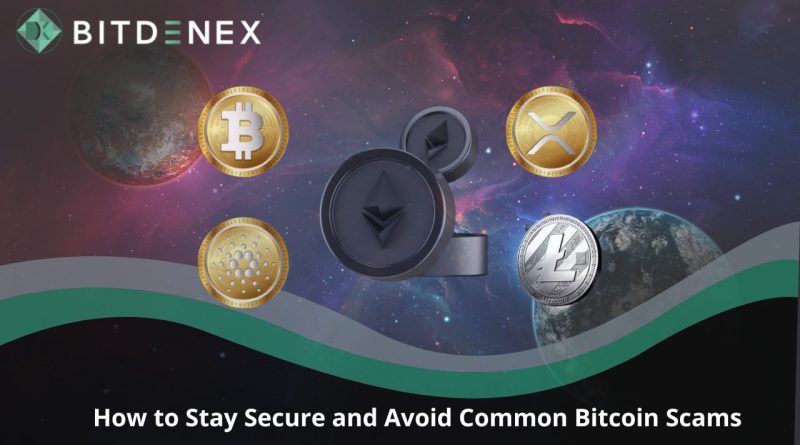How to Stay Secure and Avoid Common Bitcoin Scams
Welcome to the world of Bitcoin(BTC), where you are your first and last line of protection against scammers and fraudsters.
Is this year the year that you finally take the plunge and purchase your first few satoshis? Before you do, here are a few recommendations to avoid falling victim to some of the Bitcoin(BTC) scammers and hucksters who will try to take benefit of people who are always new to the wild world of cryptocurrencies.
Do your research
The first step along the way is setting up a wallet to keep your Bitcoins safe. There are many Bitcoin(BTC) wallets on the App Store and Google Play. Just read reviews and do some research on wallets before deciding on one. You want to be sure that you are depositing your newly acquired Bitcoin funds into a legitimate wallet that will actually keep your crypto safe and not being stolen.
You also need to decide on an exchange where you can buy your first Bitcoin. There are many exchanges and they come with different levels of security. Most require some form of identity verification before you can set one up, so be prepared.
When it comes to wallets and exchanges, make sure the site you are visiting is reputable before sending any money. A fancy website is not necessarily the sign of a reputable company. Likewise, just because a wallet app is listed on an app store doesn’t guarantee that it’s safe.
Protect your Bitcoin keys
Bitcoin isn’t like your bank. There is no helpline you can phone, no fraud department that might help you sort out a transaction and no way to block a “suspicious transaction.” The ethos of Bitcoin(BTC) is that it exists beyond the traditional financial system and gives ultimate control to the user.
On the one hand, this means you aren’t paying overdraft prices or having the government earn access to your personal data through your financial transactions. On the different hand, there is no centralized authority who is driving to step in and protect you if you transfer your keys and have your Bitcoin(BTC) stolen. In some ways, it’s the ultimate test of unique responsibility.
Sharing is not caring
Never share your private key with anyone, and certainly not online. Also, when you create a wallet, you often get a seed phrase. Also known as a backup phrase or recovery phrase, this is a group of words that were generated once when the wallet was made and you are required to write them down and keep them in a secure place. The reason you are usually asked to write them down is so they are not stored on your computer where they are vulnerable.
No one is going to give you free Bitcoin(BTC)
Finally, take it slow and be cautious. There are more progressive hacking and scamming techniques out there. who carried out the scam over the system for months. I’ve seen cases where people gave “traders” their personal keys so they could turn earnings, only to see their wallets slowly drained.

